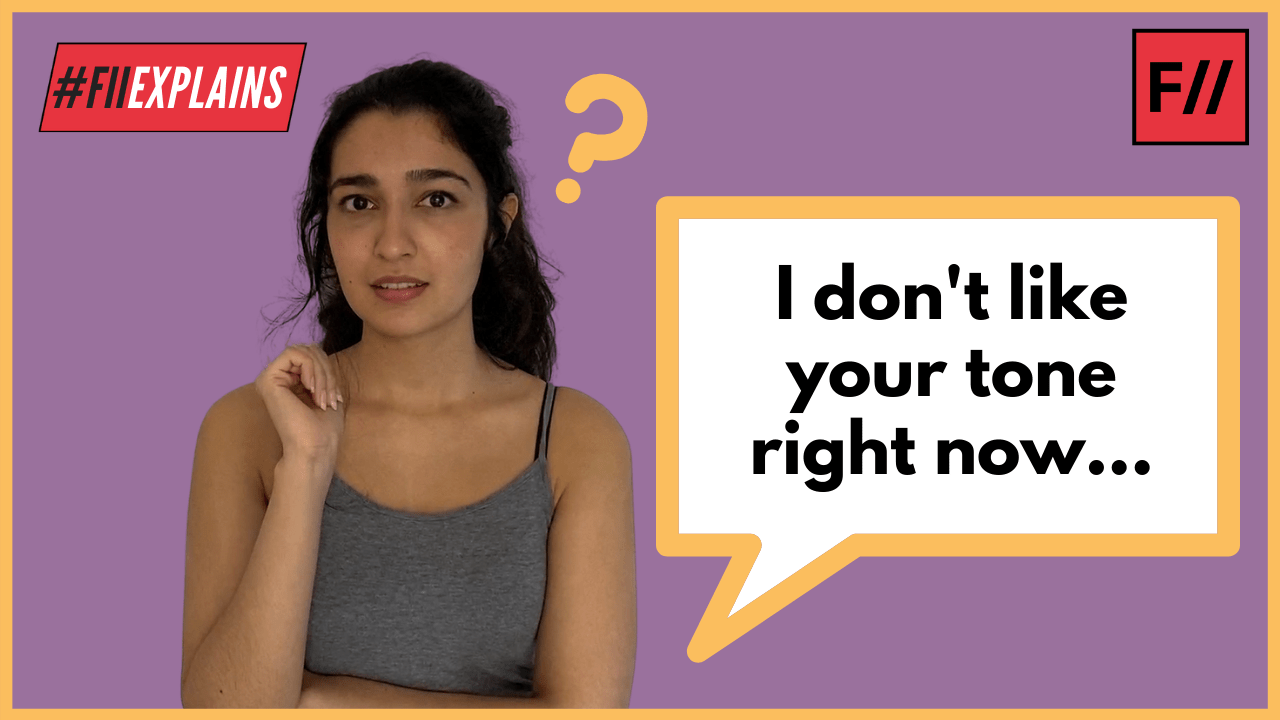Tone policing is when someone tries to diminish the validity and importance of a statement by attacking the tone in which it is said, instead of the original message itself. It is a very real way of gaslighting someone. You may recognise it in these commonly said retorts:
“It’s not that big a deal, why are you getting so offended?”
“You need to calm down!”
“I don’t like your tone right now.”
Why Is This Wrong?
- Tone policing is an oppression tactic
Apart from the fact that it is extremely infuriating, tone-policing is also described by many as an oppression-tactic. It is used by many who stand higher on the “privilege ladder” to divert a conversation in their favour. For example, if you tell someone, “How can you say something so offensive?” and they reply with, “oh god, don’t tell me you’re one of those whiny feminist-types”. The argument will now become whether or not you are really being whiny, and they have successfully evaded taking responsibility for their offensive remark.
- Makes the affected person look unreasonable
Tone policing also portrays the person speaking in a negative light. It is often used to convince the speaker that they are acting “crazy” and unreasonable simply because they have used a certain tone. Instead of acknowledging that person A might have actually said something hurtful, discriminatory, and unwarranted, tone policing attacks person B for not being polite in return, for not “educating” person A more kindly.
- It exhausts and silences the marginalised
Usually, when someone is speaking up about being oppressed, especially when they are talking about their lived experiences, they do so after putting in a lot of thought, courage, and effort. When people with more privilege easily dismiss them on the basis of just their tone, this can be extremely disheartening and exhausting. In this way, tone policing continues to silence the marginalised, and preserve the fragile egos of the privileged.
- Equates composure with rationality
Finally, tone policing also gives the impression that it’s impossible for reason and emotion to co-exist. Why do we immediately assume that anger, sadness, or fear is always unfounded? Why don’t we try to understand that they are very valid emotions having experienced continual injustice? Being calm does not necessarily mean someone’s opinion is correct, and being upset does not mean that someone is overreacting, exaggerating, or is wrong!
Also read: Infographic: What Is Tone Policing And Why Is It Wrong?
About the author(s)
Manasi is a Gender & Sexuality campaigner at Jhatkaa.org. She is the former Digital Editor at Feminism in India and a researcher in the field of women and work. She hopes to keep learning and unlearning about feminism and intersectionality, and to create meaningful impact through her work.




